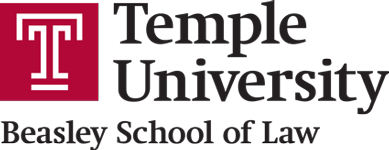I have spent this Fall studying at Tsinghua University School of Law, one of China’s most prestigious Universities. Tsinghua is located in Beijing, the capital of China, and boasts a long-standing partnership with Temple University—Temple was one of the first institutions to take steps to normalize U.S.-Sino relations, and in 1979 Temple bestowed an honorary degree on then-Vice Premier Deng Xiaoping. That relationship continues today, with Temple and Tsinghua partnering to teach Chinese judges, attorneys, and law students about the American legal system and the rule of law. Being a student at Tsinghua is uniquely challenging and rewarding, and I am glad to have been able to take advantage of the opportunity to study here.
Tsinghua has been in my law school plan since I began to research law schools. I taught English in Shenzhen, China before I began studying law, and when I applied for law school I gave special weight to those institutions with programs in Beijing. Fortunately, I was accepted by Temple and subsequently accepted by Tsinghua, and I have been able to return to this country and its rich history, well-developed culture, and truly unique legal perspective.

Studying in China has broadened my understanding of the law and legal systems. China is a civil law system—a somewhat fuzzy concept to most American law students outside of Louisiana, and certainly to me. The different roles played by judges and advocates in civil law systems may lead to different results, but not ones that are necessarily unjust. China also has a unique relationship with its Constitution—though the Constitution is formally the normative legal document of the country, it is not applicable in individual court cases, an idea that initially shocked me and my American constitutionalist sensibilities. Chinese procurators (roughly equivalent to American prosecutors) are charged not only with prosecuting accused criminals, but also with overseeing the entire court system to ensure that it is functioning effectively. The legal system here is truly foreign, and it has been eye opening to study.

But my time here is not only about the classroom—to round out my learning experience, I have traveled across China, visiting different cities and attempting to absorb more Chinese culture than I can gain in a classroom. By eating local delicacies, taking the buses, subways, and trains, and visiting historical museums and monuments, I have been able to develop a better, if still shallow, understanding of what life means in China for people from different areas. This kind of growth has, in turn, helped me intuit why the Chinese legal system has taken its current form and how, despite its many differences from the American system that I’m familiar with, it is able to provide justice across the world’s most populous country.
One of the most fulfilling opportunities I have had here involves the much-feared, much-maligned activity of networking. I have had several chances to meet Chinese attorneys and learn about their experience working in and engaging with the Chinese legal system. I have been able to speak with judges, procurators, litigators, and transactional attorneys who work, day in and day out, to make the Chinese legal system work for its citizens.
Besides meeting Chinese legal professionals, by taking classes in an international LL.M. program, I have been exposed to students and lawyers from around the globe. These international scholars all bring different ideas about what the law means and how it should work, expanding my understanding of justice. I hope to take this fledgling network of Chinese and international attorneys and strengthen it into a durable web that can be used to provide effective service to clients, no matter where they reside.

This semester has not been easy. Mandarin Chinese is a challenging language to learn, and the cultural differences between Philadelphia and Beijing are significant and sometimes shocking (even for someone who lived in China before). The comforts of home that I’m used to, from fast friends and family to the ever-present food trucks that dot Temple’s campus, are noticeably absent here. As a result, I am rarely completely at ease. For those students considering studying abroad, I would tell them that this discomfort is one of the best aspects of studying in a foreign country—I have grown in ways that I never would have expected, and I could never have done that without accepting and embracing the challenges that come with living, and learning, abroad.
